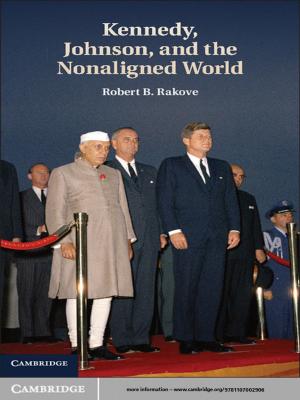Aid for Elites
Building Partner Nations and Ending Poverty through Human Capital
Nonfiction, Social & Cultural Studies, Political Science, International, International Relations| Author: | Mark Moyar | ISBN: | 9781316472125 |
| Publisher: | Cambridge University Press | Publication: | February 1, 2016 |
| Imprint: | Cambridge University Press | Language: | English |
| Author: | Mark Moyar |
| ISBN: | 9781316472125 |
| Publisher: | Cambridge University Press |
| Publication: | February 1, 2016 |
| Imprint: | Cambridge University Press |
| Language: | English |
Current foreign aid programs are failing because they are based upon flawed assumptions about how countries develop. They attempt to achieve development without first achieving good governance and security, which are essential prerequisites for sustainable development. In focusing on the poorer members of society, they neglect the elites upon whose leadership the quality of governance and security depends. By downplaying the relevance of cultural factors to development, they avoid altering cultural characteristics that account for most of the weaknesses of elites in poor nations. Drawing on a wealth of examples from around the world, the author shows that foreign aid can be made much more effective by focusing it on human capital development. Training, education, and other forms of assistance can confer both skills and cultural attributes on current and future leaders, especially those responsible for security and governance.
Current foreign aid programs are failing because they are based upon flawed assumptions about how countries develop. They attempt to achieve development without first achieving good governance and security, which are essential prerequisites for sustainable development. In focusing on the poorer members of society, they neglect the elites upon whose leadership the quality of governance and security depends. By downplaying the relevance of cultural factors to development, they avoid altering cultural characteristics that account for most of the weaknesses of elites in poor nations. Drawing on a wealth of examples from around the world, the author shows that foreign aid can be made much more effective by focusing it on human capital development. Training, education, and other forms of assistance can confer both skills and cultural attributes on current and future leaders, especially those responsible for security and governance.















